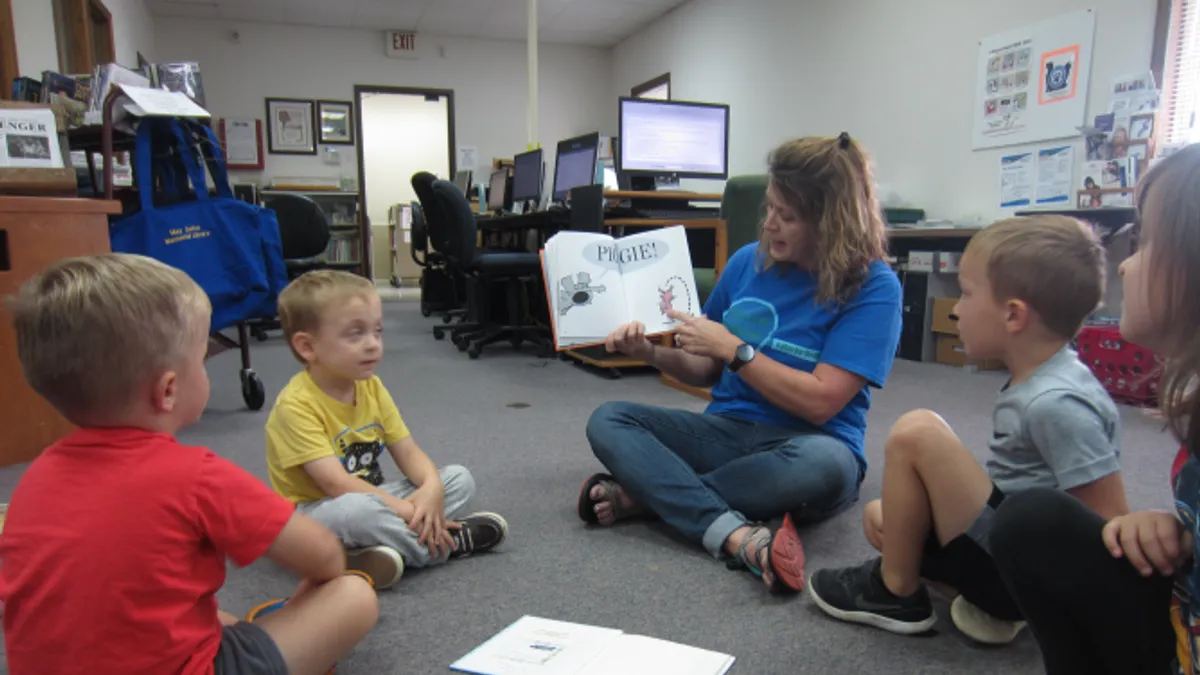Dive Brief:
-
In order to narrow the achievement gap between low-income and affluent students, schools may benefit from adopting elementary curricula focused on building knowledge, according to an article in The Atlantic.
-
Previous case studies show students from different socioeconomic backgrounds and spanning different reading levels do not differ in reading skills, but rather in the knowledge and vocabulary that provides the context needed for reading comprehension. When kids from both lower and higher reading levels had the same knowledge, their comprehension was essentially identical.
-
Over the years, schools have increased their focus on acquiring reading comprehension skills in their curricula while sidelining valuable subject areas like history and science, but boosting reading comprehension for low-income students especially may require educators to consider broadening subject matter in reading material to build the vocabulary and knowledge needed for better comprehension.
Dive Insight:
Despite significant efforts to improve its education system and student academic achievement rates, America is still lagging behind other advanced industrial nations.
Every three years since 2000, the Programme for International Student Assessment (PISA) measures reading, math and science for 15-year-olds from both developed and developing nations. According to the most recent cross-national assessments, the United States has actually fallen behind other nations since the initial exam's results were released in 2003.
Students are also increasingly falling behind on college completion, with the U.S. dropping from first in the world in 1995 to 10th in 2016.
The hyper-focus on math and reading education, as well as STEM, during the No Child Left Behind years came at the expense of areas like the arts and social studies, as well as soft skills, leaving high school and college graduates at a disadvantage in the workplace in areas like creativity, teamwork and critical thinking.
A recent study showed employers believed graduates were lacking in essential skills like communication and critical thinking, both of which they consider necessary for career advancement. Significant improvements to curricula, some respondents said, could address student success. However, only a handful of states currently recognize the arts, for example, as a part of their ESSA accountability plans, despite the legislation pushing for a more well-rounded education.
With ongoing efforts to reevaluate and boost America’s declining education system, it is important to also reassess curricular approaches and content. A well-rounded curriculum — focused on not just STEM and acquiring reading skills, but also on the liberal arts such as history and music, and with content that engages students and builds on their interests — could achieve more to close the achievement gap and propel low-income students forward.
Altering curriculum from a skills-based to knowledge-based approach and focusing content to feed student curiosity could not only keep students engaged, but also instill a love for learning early on.














